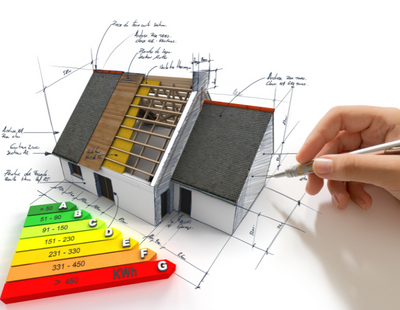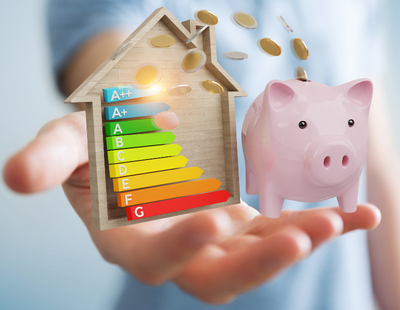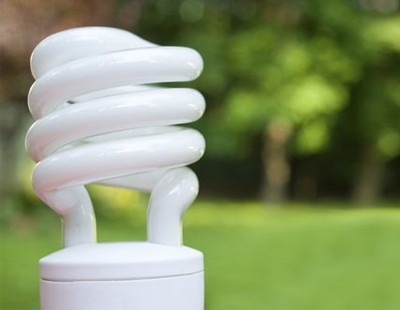In 2021 the government published its Heat and Buildings Strategy which proposed phasing out the installation of new fossil fuel heating systems in homes from 2026. In most cases, these properties will be expected to install a heat pump when their existing boiler stops working. The announcement was part of the government’s ambition to achieve net zero by 2050.
OFTEC says that whilst for some properties transitioning to a heat pump is a sensible choice, rural homes are often more difficult as they have low energy efficiency and would require costly and disruptive renovations for the technology to work effectively. This could include the reintroduction of a hot water tank, new radiators and changes to the pipes.
As a result, it has seen a surge in enquires from buyers concerned about purchasing a rural property in case they face additional costs to switch to a greener heating system.
In response, OFTEC has issued the following guidance to estate agents and landlords to clarify some of the misconceptions house buyers have:
- These are currently only proposals and we are still in the consultation stage awaiting a response from the government. With a general election next year, the 2026 date is very optimistic.
- There is no suggestion homes with fossil fuel heating systems, such as oil, will have to remove or replace their existing working boiler. The proposals only focus on the installation of new heating systems when the existing one breaks down. This means, after 2026, you can continue to use an existing oil boiler.
- Alternative solutions are being put forward. Around 150 oil heated properties across the UK have successfully transitioned to a renewable liquid fuel called Hydrotreated Vegetable Oil (HVO) as part of an industry demonstration project. The fuel reduces emissions by 88 per cent and works in the existing boiler and tank following a minor low-cost modification to the boiler. There is increasing support from rural MPs for this solution who are seeking to secure an amendment to the government’s Energy Bill.
Malcolm Farrow, head of public affairs at OFTEC, says: “As the cost-of-living crisis collides with the UK’s net zero ambitions, we’re hearing from more house buyers concerned about how the government’s energy plans will affect them if they purchase a rural property. It’s important everyone has the facts so they can make an informed decision. Unfortunately, there seems to be a lot of confusion. Quite simply, there is no suggestion at all that homes with fossil fuel heating, such as oil, will have to remove their existing boilers.
“What is true is that in order to meet our net zero targets, every property in the UK, including those on mains gas, will have to transition to greener heating systems in the future. Nearly two years ago, the government set out its proposals for how this can be achieved and what we need now is some clarity to put to bed the uncertainty.
“We believe that for the government’s net zero ambitions to succeed, the proposals must be fair. The focus must be on delivering green heating solutions which are practical to install and, more importantly, affordable to avoid putting any unnecessary burden on one group of homeowners. Rural properties are particularly challenging because they tend to be older and it isn’t always realistic to make the kind of changes needed to install some technologies, like a heat pump, which would require disruptive changes to the fabric of the building.
“That’s why for oil homes, we’re campaigning to secure support for renewable liquid fuels such as HVO as homeowners could keep their boiler and simply switch the fuel they are using. We believe this is the most practical solution and we’re working to secure support from the government for a wider rollout.”





























Join the conversation
Jump to latest comment and add your reply
So is this the Trade body that represents the companies who make the kit, that burns the oil, that sends the CO2 pollution straight out of millions of houses' flues, that's causing Earth's climate systems to break-down? Perfectly legal of course, but is it really a sensible thing to be doing?
It doesn't matter if you live in a rural house or an urban house - you can still install 2 x layers of new Rockwool insulation in your loft (the 2nd layer at right angles to the 1st), if it's an ugly house you can still install external wall insulation and render, if it's a pretty house you can still install thin aerogel internal insulation or breathable wood fibre internal insulation. You can still install electric air-con splits (these simple machines contain a heat pump that provides winter heating) or Smart phone controlled Quantum electric night storage heaters. Worried about ventilation - just get your handyman to install a 'fit & forget' Nuaire Positive Input Ventilation fan. All very straightforward.
Costly and disruptive - oh yes - but so was the transition from the wooden kitchen table to the Wickes fitted kitchen and from the outside privy to the B&Q fitted bathroom. But do you know what - we still managed it!
Please login to comment